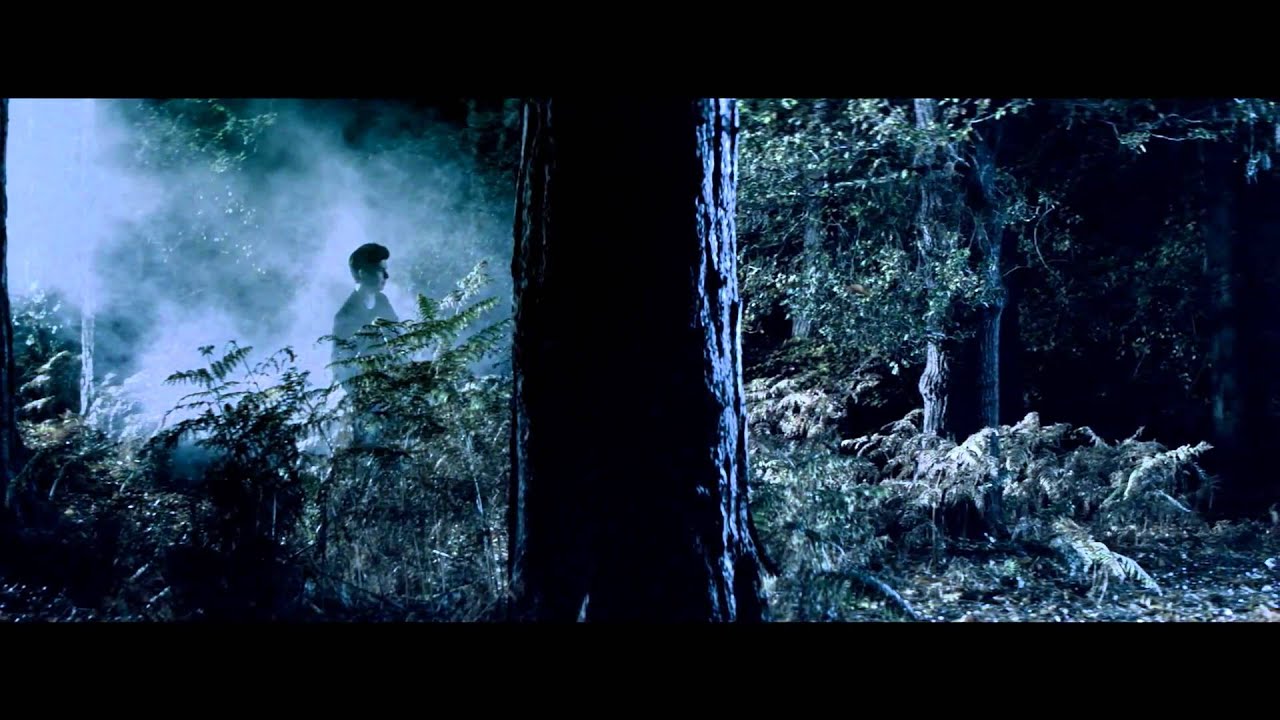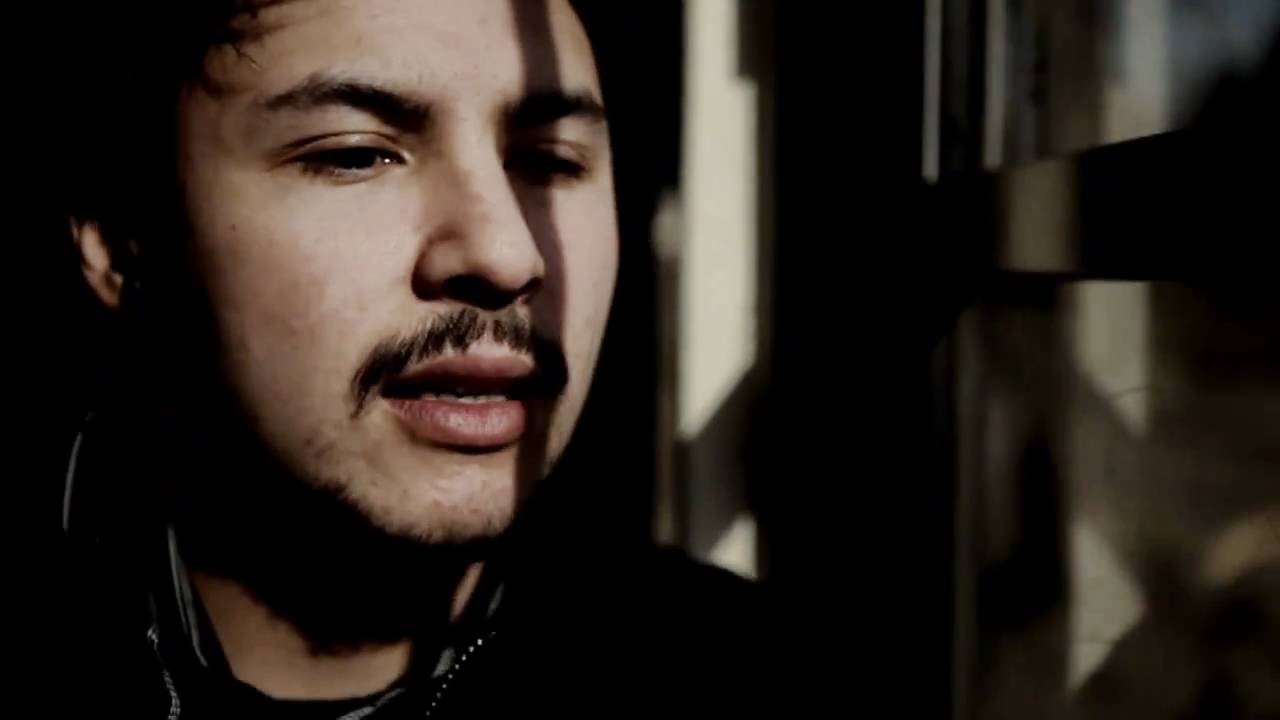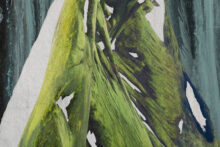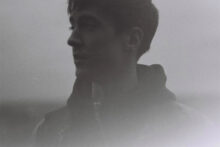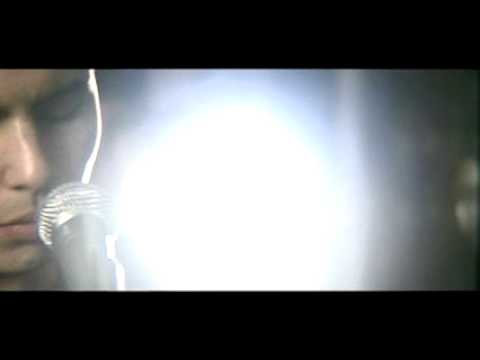Jamie Woon isn’t a man who’s easily hurried. Since dropping his EP Wayfaring Stranger back in 2007, he’s taken his sweet time in piecing together his debut full length, Mirrorwriting. But while some would condemn this four-year delay as laziness, it’s not entirely without reason, Woon keen that the pressure of expectation shouldn’t hurry him into finalizing his music before it was ready to be heard.
Still, those demands have been hard to shake off. The son of two musically gifted parents, Woon attended The Brit School for Performing Arts, the same establishment that has spawned the careers of Katy B, Jessie J and chart-bothering behemoth Adele. This, tied in with his inclusion in the cursed BBC Sound Poll For 2011, has both raised Woon’s profile and the expectations surrounding his debut album.
Primarily a singer-songwriter, Woon treads the line between club and bedroom, and neo soul and electronic-driven R&B; his lyrics are as introspective as they are dark, while his cause has been bolstered courtesy of Burial‘s ‘Wayfaring Stranger’ rework, and Ramadanman’s remix of ‘Night Air’. And while he may have eschewed the coffee-table crooning of the aforementioned James Blake, The Quietus finds Woon to be man with a quiet self belief that he belongs in the mainstream…
I’ve read that during the album’s writing process, you went to the countryside for a bit. How did that compare, creative-wise, to being in the city?
Jamie Woon: It’s just one of those things I’ve always wanted to try. It was brilliant creative-wise: there were absolutely no distractions. We went to a place in Cornwall by the sea, and then also a cottage in the Cotswolds for a couple of weeks as well, where there was no phone reception, auto responders on e-mails, no facebook – none of that. You can really get in a groove, turn night into day.
You wrote mainly at night?
JW: Yeah, mainly at night, but also through the day as well. You get into a weird headspace where you only think about the work, and maybe what you’re going to cook for dinner.
Did most of the writing take place out there?
JW: Some of it did. I wrote ‘Lady Luck’ out there. I wrote portions of other songs out there. It’s really where the record began to take shape. I just brought some of my speakers, keyboards, laptop and effects boxes and just left them set up. I was out there for two months.
You mentioned ‘Lady Luck’. That, more than any other track on the album, has a distinct repetition with the lyrics. What was the idea behind this?
JW: It came to me first to a melody, and then the lyrics, which sounded to me like a bluesy lament. I wanted to see how far I could push it with not that much variation. It’s the guilt kind of blues, the kind you can’t really put your finger on.
Where was the a capella video for ‘Lady Luck’ shot?
JW: In Cambodia. I was there on holiday over Christmas – I have a friend who lives out there, and he hooked me up with this film maker. We were both up for doing something, but I didn’t have any of my stuff with me so we decided to do it a capella, and he just took us to this really beautiful spot. It’s more about the place than about the song.
When I saw you play in Leeds, you began your set completely a capella before the backing band came in after a couple of songs. Which do you prefer?
JW: I like both. Singing is my first instrument so it’s the thing I find most comfortable doing. For a capella to work, there needs to be complete quietness, and there’s always that thrill when lots of people are quiet at the same time. It’s kind of exposed, but I do enjoy doing it. With the band it’s completely different, something I’m relatively new to.
What with the BBC sound poll and your history as a Brit School pupil, there is a certain level of pressure and expectation surrounding the release of your album. How do you deal with that?
JW: As a music listener as well, it can be quite annoying being fed this stuff about being a ‘conveyor belt artist’. I don’t feel pressure, really. I went to Brit School and it was a laugh, it was just sixth form college. As for the sound poll, I didn’t ask to be put on it! But the exposure was great; I definitely noticed the hits on the videos go up and it helped me sell out the tickets on that tour. It put me in a position where I could get an album out.
I read that you came up with the name Mirrorwriting because it symbolized the introspective process that helped you write the album. Can you explain this a bit further?
JW: When I finished the record, I got a different perspective of it. I was a bit shocked at how introspective and angsty it was, and how all the songs are either about examining an anxiety or examining a moment where there’s no anxiety. I felt this weird removal in that period, looking at it, and [it] mirrored the way I made the album, working on my own, one track at a time, layering upon layering, labouring over it for so long. It’s reflected in the artwork, which is just made up of my name written over and over and over again.
To what extent was writing the album a cathartic process for you?
JW: It’s the only goal I really had: to make a record. I knew it was going to take as long as it was going to take, and I didn’t really question it. It was cathartic in that it started as ‘Oh yeah, I’ve got loads of time’, but the longer it took, the harder it became. Choosing an end point was difficult – for whatever reason, I thought I still hadn’t worked these things out. I think a lot of the songs are about examining these anxieties, but it’s not like I’ve got over it [the anxieties] through it [making the record]; I’m just more aware of it. I feel really happy that it’s finished. I was trying to examine beautiful moments as well as my fears, and I didn’t realise until the end how important that was to me. I feel lighter now. I don’t feel as heavy as I did when I was making it.
You say most of the songs on the album were actually written three or four years ago. How do you prevent the songs from becoming stale after such a long germinating process?
JW: I guess I just got a bit obsessed with writing. I didn’t go off the songs. I see myself as a singer-songwriter, and I had a certain amount of belief in the songs. It’s more of a case of the form in which they took. My voice changed within that period as well – I guess I put quite a lot of pressure on myself to do it all. Earlier on in the process I was doing hundreds of takes with the vocals, as if I was trying to achieve perfection with the voice, but by the end of the process I was doing two or three.
What was it like working with Burial on the album? What did he bring to the table?
JW: We met through him doing the remix of ‘Wayfaring Stranger’ and he wanted to do some more stuff. There was a brief stint with him producing my record, but it didn’t work out. I didn’t have my identity and his was very strong, but he was really encouraging with production and he guided me towards a whole new set of sounds and a frequency that my voice could sit in which was the central part of the record. That’s what his contribution was, really – just overseeing things and offering advice.
You mentioned his remix of ‘Wayfaring Stranger’. You have also had songs remixed by the likes of Ramadanman and Deadboy. What are your feelings on having your songs re-worked?
JW: I like to take the idea of a remix on a tune-by-tune basis. With the first two singles, I felt they would sound really good with remixes. Ramadanman was the first person I thought of with ‘Night Air’ and I thought he did a really good job. I don’t like just casually sending out parts for anyone to have a go with. It feels like collaboration – giving a lot of power to the other person, you have to choose a person who you trust, and then just leave them to it. It’s nice to see something come back, a re-interpretation.
What do you think it is about R&B that lends itself to this darker and more haunted approach that you’ve described your music as being?
JW: I think it’s the blues, really. It’s rooted in folk music, something I grew up around; I’ve always been surrounded by it. I need to write about the things that are most serious and most important to me. I write about things that I don’t understand, things that I want to know about. It seems like the broadest genre… it goes way, way back. If you add in that old, ancient vibe to electronic music, where you can sample and change the frequency, you can do anything you want. That’s massively liberating.
Towards the end of the album, there’s a change in pace and the acoustic guitar becomes more prominent, appearing on tracks like ‘Spiral’, ‘Gravity’ and ‘Waterfront’. How do you decide which tracks will eventually keep acoustic guitar?
JW: It wasn’t a conscious decision to take the guitars away, because that is my first instrument. All the groove is in the guitar part, normally. It’s the first thing I put down. I add sounds in and around it, but because the guitar is such a full sound, I found myself taking it out. It’s just so dominant. I didn’t build around it; the record was definitely built around the voice.
What did you replace the guitar with when you took it out?
JW: A lot of these sort of plinky-plonky sounds that I grew quite fond of, that have a percussiveness and roundness to it. They can still drive the track in the same way the acoustic guitar can. It got to the point where I just wasn’t playing guitar anymore because I’d taken it out. I was into these new sounds. I go through infatuations; I’m really into that now, like I was really into guitar before. I’d like to make the next record a lot faster, definitely.
Is it right that ‘Night Air’ took you two and a half years to write? Why?
JW: There’s a few reasons, mainly just that I changed the key of it a few times. I was obsessed with how they lyrics captured how I felt. That was the track that helped me write the rest of the songs – a lot of the work for the album was done for the track. That was the first track that was produced.
I hear that your mum is a Celtic folk singer and that she provided backing vocals for ‘Night Air’. Could we see a mother/ son album collaboration sometime in the future?
JW: Yeah, I’d really love to do that. I’m quite busy at the moment, and she hasn’t been doing her own music for quite a while. She recorded last in 1996 but she’s been saying she wants to do some touring. That reminds me to ask her, actually. It’s on my list of things to do…


